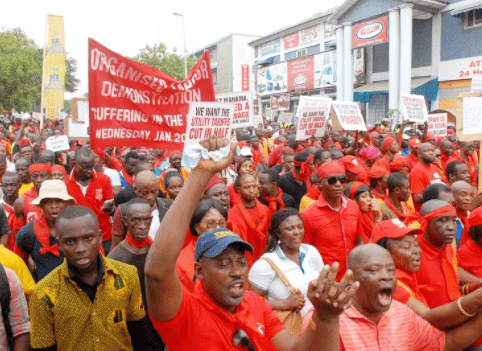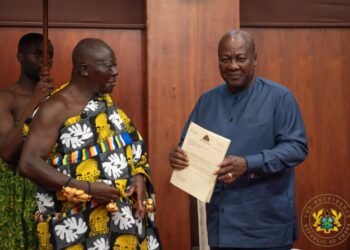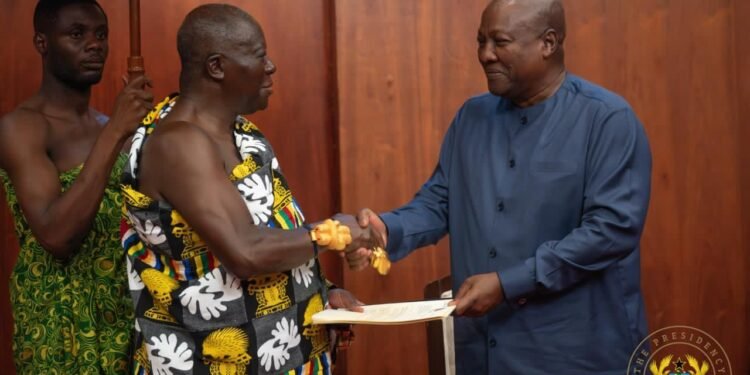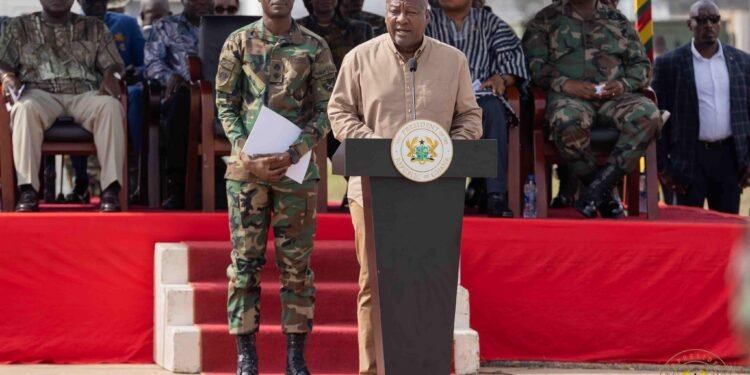The National Identification Authority (NIA) has issued a press statement supporting the National Labor Commission’s (NLC) directive, urging the Public Services Workers’ Union (PSWU) to halt the strike and resume work, effectively endorsing the NLC’s orders to the union’s NIA division.
The NIA acknowledged that on Wednesday, June 12, 2024, the National Labor Commission (NLC) officially declared the indefinite strike initiated by certain NIA staff members on Monday, June 10, to be illegal and unwarranted, thereby rendering the strike action null and void.
“The NLC found that the declaration of strike by the staff contravened Section 161 of the Labor Act 2003 (Act. 651) which makes it illegal for a party to declare strike when negotiations are ongoing”(1) A party to an industrial dispute shall not resort to a strike or lockout during the period when negotiation, mediation or arbitration proceedings are in progress”.
National Identification Authority (NIA)
The NIA pointed out that Section 161(2) of the Labor Act 2003 (Act 651) stipulates that any party found in breach of subsection (1) shall be held liable for any damages, losses, or injuries incurred by other parties involved in the dispute.
NIA announced that, consequently, the National Labor Commission (NLC) has directed the immediate termination of the strike and ordered the National Union of Public Service Workers Union (PSWU) of the Trades Union Congress (Ghana), the parent union of the NIA Division of PSWU, to ensure the striking employees return to work forthwith.
Furthermore, the NIA also announced that the NLC instructed the PSWU to rejoin the negotiations facilitated by the Fair Wages and Salaries Commission (FWSC), which are aimed at resolving the outstanding issues related to the strike.
The NIA indicated that the parties are required to submit a progress report to the National Labor Commission (NLC) by July 3, 2024, detailing the outcome of their negotiations, following which the NLC will determine the next course of action.
Union Leadership Defies NLC Summons
Furthermore, the National Identification Authority (NIA) observed that despite being duly summoned by the National Labor Commission (NLC), the leadership of the NIA Division of the Public Services Workers Union (PSWU) failed to appear at the scheduled hearing, a move that may be considered a violation of the NLC’s directives.

Accordingly, The NIA expressed its discontent and dismay at the NIA PSWU’s apparent unwillingness to collaborate with the NIA and the NLC, which may obstruct the progress of negotiations and the finding of a mutually beneficial solution.
“The NLC directed the parties to attend the next negotiations meeting scheduled for Friday, 14 June 2024, at the NIA Headquarters, and to negotiate in good faith”.
National Identification Authority (NIA)
Meanwhile, the NIA division of the Public Services Workers’ Union (PSWU) has reaffirmed its resolute position, stating that it will not budge until its members’ grievances and demands are satisfactorily addressed and their needs are adequately met by the National Identification Authority (NIA).
The PSWU of NIA attributed its absence at the hearing to the repeated breaches of negotiated deadlines by the stakeholders, namely the Fair Wages and Salaries Commission, NIA, Ministry of Employment and Labor Relations, and Ministry of Finance, which has led to a breakdown in trust and confidence in the negotiation process.
Moreover, the union has instructed its members to withdraw all services provided by NIA staff, resulting in a complete shutdown of operations at district offices, regional offices, headquarters, and premium centers nationwide, effectively halting all NIA services across the country.
The Union’s decision has consequently led to a nationwide disruption of NIA’s operations, resulting in the abandonment of clients at various regional offices, leaving them stranded and unassisted.
The NIA is keen to have the matter resolved promptly, to restore stability to its operations and facilitate a seamless delivery of services to its clients.
READ ALSO: Lack of Spiritual Value in Ghanaian Songs, a Cause for Concern























